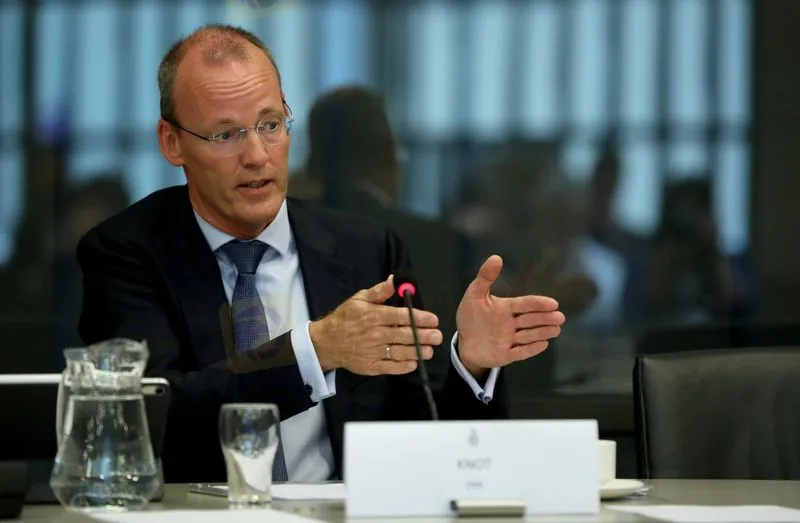简体中文
繁體中文
English
Pусский
日本語
ภาษาไทย
Tiếng Việt
Bahasa Indonesia
Español
हिन्दी
Filippiiniläinen
Français
Deutsch
Português
Türkçe
한국어
العربية
ECB sees first interest rate hike in fourth quarter of 2022
Abstract:Klaas Knot, the Dutch central bank president and a member of the European Central Bank's Governing Council, said on Sunday he expects the ECB to raise interest rates in the fourth quarter of this year.

Klaas Knot, the Dutch central bank president and a member of the European Central Bank's Governing Council, said on Sunday he expects the ECB to raise interest rates in the fourth quarter of this year.
In an interview on Dutch television programme Buitenhof, Knot, known as one of the more hawkish members of the ECB's board, said he supported winding down the euro zone central bank's asset purchasing programme as quickly as possible.
“Personally I expect our first rate increase to take place around the fourth quarter of this year.... Normally we would raise rates by a quarter percentage point, I have no reason to expect we would take a different step.” He added that he thought a second hike would likely follow in early 2023.
The bank must first end its asset purchasing programmes, currently set to be wound down in steps to 20 billion euros ($22.89 billion) per month by the fourth quarter. However, since Thursday bond markets have begun pricing in around 40 basis points of rate hikes by December.
“The first two rate increases will follow each other quite quickly, as they will take us out of negative territory,” Knot said.
“After that, if we don't see a wage-price spiral and inflation expectations remain anchored around our 2% target there is not much reason for us to increase rates significantly and quickly.”
Knot said that inflation in the euro zone, at 5.1% in January, was too high, and will probably last into 2023 before receding - assuming there is no further unexpected increase in energy prices.
For more blockchain news, please download WikiBit - the Global Blockchain Regulatory Inquiry APP.

Disclaimer:
The views in this article only represent the author's personal views, and do not constitute investment advice on this platform. This platform does not guarantee the accuracy, completeness and timeliness of the information in the article, and will not be liable for any loss caused by the use of or reliance on the information in the article.
Read more

Why Is UK Inflation Rising Again Despite Recent Lows?
October inflation rises to 2.3%, driven by energy costs. Renters face 8% annual hikes, while house price inflation climbs. Interest rates stay elevated.

How Inflation Rates Affect Forex Prices Globally
In this article, we’ll explore how inflation affects forex prices globally, the relationship between inflation and currency value, and why traders monitor inflation closely.

PH Financial Sector Grows to P32.3T, Up 10.5% in June
The Philippine financial sector expanded by 10.5% in June, reaching P32.3 trillion. Bank resources surged, while positive earnings drove stock market gains.

US Inflation Cools, But Economic Pressures Still Remain
Inflation shows signs of cooling in the U.S., but persistent economic pressures, particularly housing and utilities, continue to challenge growth.
WikiFX Broker
Latest News
AIMS Broker Review
The Hidden Checklist: Five Unconventional Steps to Vet Your Broker
YAMARKETS' Jingle Bells Christmas Offer!
Why is there so much exposure against PrimeX Capital?
Russia to Fully Ban Crypto Mining in 10 Regions Starting January 1, 2025
Two Californians Indicted for $22 Million Crypto and NFT Fraud
WikiFX Review: Is Ultima Markets Legit?
Colorado Duo Accused of $8M Investment Fraud Scheme
MTrading’s 2025 "Welcome Bonus" is Here
Malaysia Pioneers Zakat Payments with Cryptocurrencies
Currency Calculator


